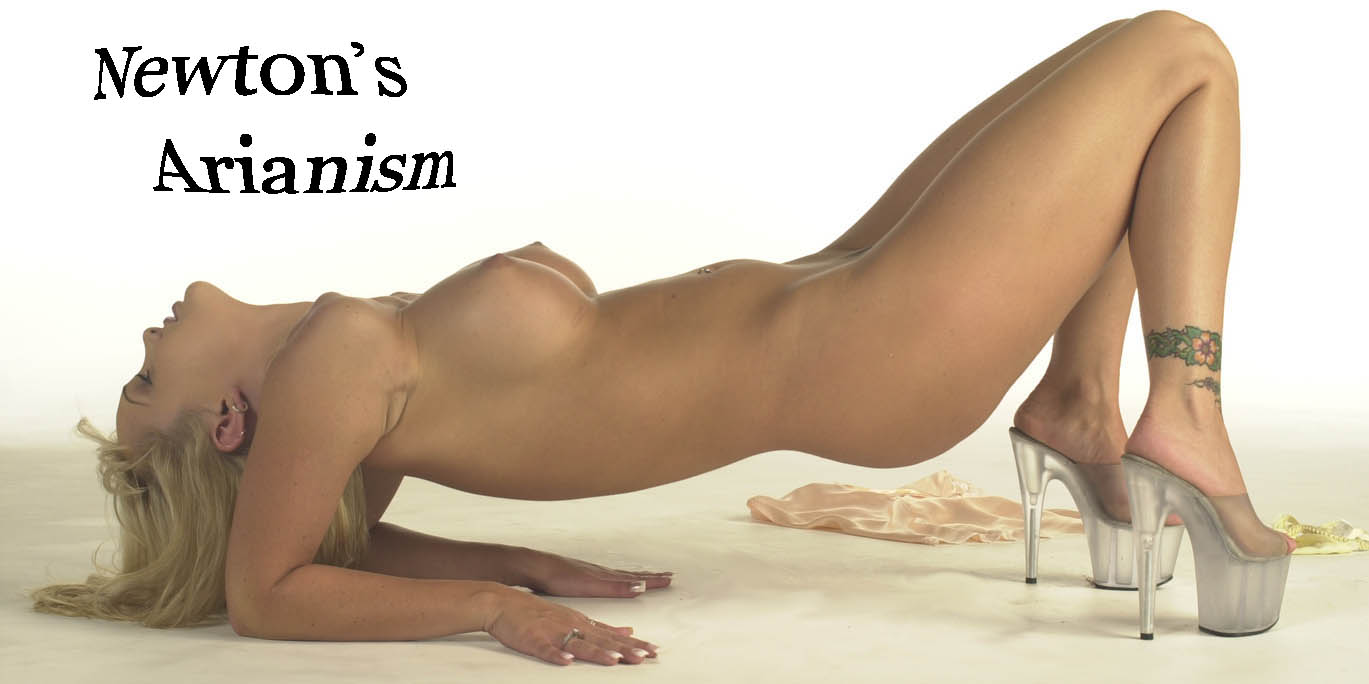
|
|
Newton’s Arianism Newton appears to a philosopher more like a poet than a logician. His writings betray a wild torrent of imagination, a struggle to find the appropriate word to describe an intuitive insight (the neologism “gravity??? for example), the ability to create conceptual tools for the expression of hitherto unknown mathematical regularities. Newton’s style is not the rigorous progression from one thoroughly defensible position to another but the sudden burst of insight that tied together the dissimilar and simplified our understanding of the world and all the new things he and his contemporaries were discovering about the world. Newton’s notes in favor of the single God, which appear to reach back to what has been called the Arian heresy, are themselves dogmatic statements and can hardly be described as cautious reasoning designed to defend his beliefs. He was not a philosopher even though he staked out a set of beliefs that could only be defended philosophically. Despite all this, it is tempting to see in Newton’s Arianism a like-mindedness to Spinoza’s argument against any notion of God as a freestanding agent with feelings like human beings, namely an anthropomorphic God. For whatever reason, Newton felt it extremely important to deny the divinity of Christ and the Holy Ghost, important enough to prepare to give up his professorship of mathematics if forced to choose between that and his theological beliefs, important enough to compel him to drop “AD??? in his personal dating system. Newton clearly felt that the errors of idolatry also applied to any belief that Christ was somehow God. He did not take the final step, as Spinoza did, to see that attributing any emotions, personality or even qualities or separateness to the unitary God is indistinguishable from idolatry. Spinoza was led to conclude that God was identical with everything that is and was expressed through the physical laws of the universe, or however many such laws as were known to Spinoza’s generation. Perhaps the slightest push would impel Newton, the great codifier of the laws of physics, to see God in exactly the same way Spinoza did. Newton’s sole argument in favor of religion is peremptory and surprisingly unconvincing: The only reason Newton presents for remaining religious is religion’s consecration as a long accepted custom. He, of course, saw no problems with abolishing at a stroke the belief in occult qualities and Aristotelian cosmology, which could also be justified by centuries of acceptance. A less exalted view of Newton’s “Short Schem of the True Religion??? would see it as hastily scribbled notes not meant for public consumption. It reads not very differently from the thousands of tracts pouring forth from the thousands of religious polemicists of his day. None of these scribblings have much to offer besides a rather simple minded dogmatism. There is as much reason to accept the first glance opinion that theological questions were for Newton an eccentric hobby and unrelated to his scientific theories – only someone willing to argue philosophically such as Spinoza could attempt to conceptualize such a relation. Still, Newton’s actions are a matter of pubic record and speak louder than his words. He was quite willing to resign the Lucasian professorship at Cambridge rather than submit to Holy Orders (although he petitioned successfully for an exemption). Even more telling, he refused the last sacraments upon his death. Newton was clearly an individual who, like Spinoza, saw little meaning in religious ritual. He reached the same conclusion: Religious behavior is truly expressed not in the observance of meaningless ceremonies but in the performance of good works. As far as it goes, this was a conclusion that was quickly becoming current in the 17th century where religious civil wars and sectarian bickering were without doubt both gory and inane. Where Spinoza took one more step was to thoroughly drain the concept the concept of God from any real meaning and to reduce the practice of religion to rationally founded altruistic behavior. It is not clear whether Newton’s trinity minus two was as radically abstract and hence meaningless as Spinoza’s God. However, the two pursued parallel courses of action in refusing to participate in sectarian ritual. An intriguing but assuredly more tenuous parallel could be drawn between Newton’s notion of the sensorium of God and Spinoza’s definition of mind and matter as two attributes of one substance. Admittedly they were addressing different issues. Spinoza defined a conceptual framework free of the notion of mind as a separate substance and the problems attendant to that notion, viz. ontological overpopulation and the temptation to believe in ghosts. Newton wanted to understand how an omnipresent God could perceive. Yet, by raising such an issue Newton signals that he has left behind the biblical God who speaks from burning bushes and appears periodically unaware of the nefarious deeds of his chosen people. The universal sensorium and mind as an attribute of substance could easily viewed as twin expressions of the same concept, one personal and rather literary and the other expressed in more tradition metaphysical terminology.
|
||

